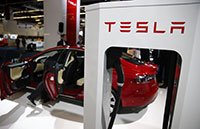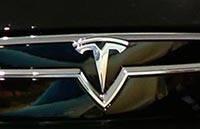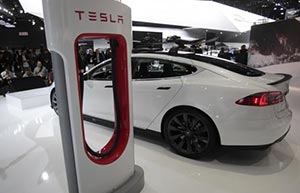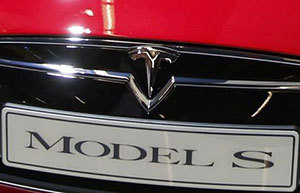As Tesla targets high-end buyers, it is unlikely to be confronted with the harsh market facing Chinese automakers, which focus on inexpensive electric vehicles, since neither the price nor the inconvenience of charging are likely to dissuade wealthier buyers with their own villas and underground garages.
"Headwinds will only hit when Tesla starts to expand its business to China's low-end electric sedan market," Jia said. However, there are few signs of this happening in the near future.
 |
 |
Zhang stressed that the country's electric sedan producers are not yet mature, with a lack of technology and difficulties in application.
In response, the central government has rolled out an array of measures, ranging from subsidies to facility construction to boost the sector.
In 2010, China began a pilot program in five cities, including Shanghai, Shenzhen, Hangzhou, Hefei and Changchun, to encourage individuals to buy electric sedans with subsidies of up to 60,000 yuan.
The program was upgraded in the last year with a national promotion project in 28 Chinese cities and city clusters where government subsidies will be provided for users and manufacturers from 2013 to 2015.
The government expects both sales and production of pure electric and hybrid vehicles to reach 500,000 units by the end of 2015, but it won't be an easy task.
For Tesla, however, official subsidies are just the icing on the cake. With possible plans to build factories and charging stations in China, the company hopes the Chinese market will account for up to 35 percent of global sales growth this year.
In 2013, some 22,500 units of Model S were sold in the global market, according to data from Tesla.
More Tesla stories:
 |
 |
|
|
|
|
|
|
|
|
